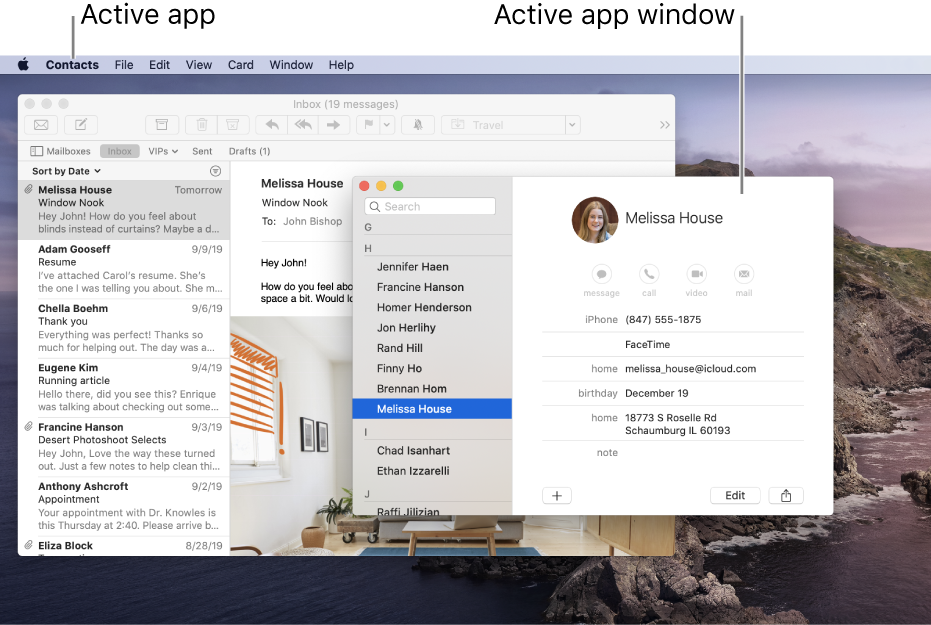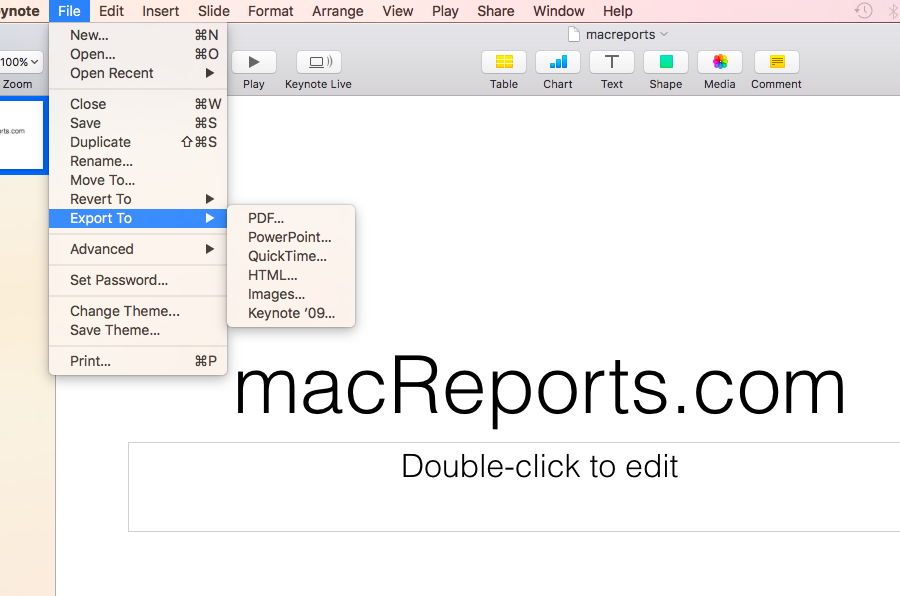Open Microsoft Windows Application On Mac
- Apr 06, 2019 How to access Microsoft Remote Desktop on your Mac by Conner Forrest in Software on June 25, 2018, 7:54 AM PST If you need to access Windows applications through your Mac, a remote desktop.
- Jan 15, 2016 How to run Windows applications on a Mac, without installing Windows. If you only need to run a few specific Windows application on your Mac, then you might not need to go to the expense or hassle.
- Microsoft Windows For Mac Free
- How To Open Microsoft Windows Application On Mac
- Free Windows Application
- Windows Vista Application
- Run Mac Application On Window
- How To Open Microsoft Windows Application On Mac
Sep 05, 2018 Install Windows apps directly with CrossOver and use a Windows app like any other native Mac App; There are advantages and disadvantages to each, but that last one – installing Windows apps. Jan 15, 2020 Applies to: Office for Mac, Office 2019 for Mac, Office 2016 for Mac. Microsoft AutoUpdate (MAU) version 3.18 and later includes the msupdate command-line tool. This can be used to start the update process for Microsoft applications produced for Mac, such as Office. Feb 21, 2014 Easily Run Windows Applications on Mac OS X By Damien – Posted on Feb 21, 2014 Feb 20, 2014 in Mac If you are using Mac OS X and want to run Windows applications, the most popular option is to install Windows OS using Bootcamp, or run Windows in a virtual machine.
Use VBA add-ins and macros that you developed for Office for Windows with Office for Mac.
Applies to: Excel for Mac PowerPoint for Mac Word for Mac Office 2016 for Mac
If you are authoring Macros for Office for Mac, you can use most of the same objects that are available in VBA for Office. For information about VBA for Excel, PowerPoint, and Word, see the following:
Note
Outlook for Mac and OneNote for Mac do not support VBA.
Office 2016 for Mac is sandboxed
Unlike other versions of Office apps that support VBA, Office 2016 for Mac apps are sandboxed.
Sandboxing restricts the apps from accessing resources outside the app container. This affects any add-ins or macros that involve file access or communication across processes. You can minimize the effects of sandboxing by using the new commands described in the following section.
Creating an installer or putting user content
For instructions on creating an installer for your add-in, please refer to the article here: Installing User Content in Office 2016 for Mac
New VBA commands for Office 2016 for Mac
The following VBA commands are new and unique to Office 2016 for Mac.
| Command | Use to |
|---|---|
| GrantAccessToMultipleFiles | Request a user's permission to access multiple files at once. |
| AppleScriptTask | Call external AppleScript scripts from VB. |
| MAC_OFFICE_VERSION | IFDEF between different Mac Office versions at compile time. |
Ribbon customization in Office for Mac
Microsoft Windows For Mac Free
Office 2016 for Mac supports ribbon customization using Ribbon XML. Note that there are some differences in ribbon support in Office 2016 for Mac and Office for Windows.
| Ribbon customization feature | Office for Windows | Office for Mac |
|---|---|---|
| Ability to customize the ribbon using Ribbon XML | Available | Available |
| Support for document based add-ins | Available | Available |
| Ability to invoke Macros using custom ribbon controls | Available | Available |
| Customization of custom menus | Available | Available |
| Ability to include and invoke Office Fluent Controls within a custom ribbon tab | Available | Most familiar Office Fluent Control Identifiers are compatible with Office for Mac. Some might not be available. For commands that are compatible with Office 2016 for Mac, see idMSOs compatible with Office 2016 for Mac. |
| Support for COM add-ins that use custom ribbon controls | Available | Office 2016 for Mac doesn't support third-party COM add-ins. |
idMSOs compatible with Office 2016 for Mac
How To Open Microsoft Windows Application On Mac
For information about the idMSOs that are compatible with Office 2016 for Mac, see the following:
See also
Support and feedback
Free Windows Application
Have questions or feedback about Office VBA or this documentation? Please see Office VBA support and feedback for guidance about the ways you can receive support and provide feedback.
-->Applies to:Office for Mac, Office 2019 for Mac, Office 2016 for Mac
Windows media player for mac microsoft. Related: windows 10 dvd player media player free youtube downloader converter windows media player 12 64 bit. The latest personal computer operating system by Microsoft. Windows media player for mac free download - Mac Media Player, Windows Media Player, Windows Media Player (64-bit), and many more programs. Download Windows Media Player for Mac (EN) Windows Media Player is Microsoft's media player tailored for Mac users. It allows you to easily play music and movies in all audio and video formats released before 2005. (New Windows formats can be read using QuickTime or Flip4Mac.). Windows Media Player is an application for Mac that allows you to open Windows Media files: WMA (Windows Media Audio) and WMV (Windows Media Video). The newest alternative to play Windows Media files on Mac is Flip4Mac, a plugin for QuickTime that gives you the possibility to play Windows formats using the the Apple multimedia player. Jul 11, 2019 Get Windows Media Player. Click the Start button, type features, and select Turn Windows features on or off. Scroll down and expand Media Features, clear the Windows Media Player check box, and click OK. Restart your device. Windows Media Player should be.
Microsoft AutoUpdate (MAU) version 3.18 and later includes the msupdate command-line tool. This can be used to start the update process for Microsoft applications produced for Mac, such as Office. The tool is primarily designed for IT administrators so that they have more precise control over when updates are applied. You can download the latest version of MAU from this link.
msupdate works by sending Apple Events to the MAU daemon. On macOS 10.14 Mojave and later, you may see a privacy prompt when running msupdate for the first time. If you are using an enterprise management tool such as Jamf Pro, you should deploy a Privacy Preferences Policy Control (PPPC) payload to pre-approve access. Samples of such a payload can be downloaded from here.
Use the following steps to start using the tool:
- Open the Terminal application
- Enter
cd /Library/Application Support/Microsoft/MAU2.0/Microsoft AutoUpdate.app/Contents/MacOS - Run
./msupdate --help
The following options are displayed:
Examples of how to use msupdate

- Display the current configuration parameters for AutoUpdate:
./msupdate --config - Display the current configuration parameters in machine-readable format:
./msupdate --config --format plist - List all available updates:
./msupdate --list - Download and install all available updates:
./msupdate --install - Download and install the latest updates for Word, Excel, and PowerPoint:
./msupdate --install --apps MSWD2019 XCEL2019 PPT32019 - Download and install a version-specific update for Outlook:
./msupdate --install --apps OPIM2019 --version 16.17.180090901
Application identifiers
The following table lists the applications for Mac supported by AutoUpdate. The identifier is used when specifying the --apps parameter. When specifying multiple applications on the command-line, separate identifiers with a space.
| Application | Latest version1 | 2016 version2 |
|---|---|---|
| Word | MSWD2019 | MSWD15 |
| Excel | XCEL2019 | XCEL15 |
| PowerPoint | PPT32019 | PPT315 |
| Outlook | OPIM2019 | OPIM15 |
| OneNote | ONMC2019 | ONMC15 |
| MAU | MSau04 | MSau04 |
| OneDrive | ONDR18 | |
| Teams | TEAM01 | |
| Skype for Business | MSFB16 | |
| Remote Desktop | MSRD10 | |
| Intune Company Portal | IMCP01 | |
| Defender ATP | WDAV00 | |
| Edge Canary | EDCN01 | |
| Edge Dev | EDDV01 | |
| Edge Beta | EDBT01 | |
| Edge Stable | EDGE01 |
1 These identifiers are used for Office 2019 for Mac, either a retail or a volume licensed version, and for Office for Mac (from an Office 365 plan) running on macOS version 10.12 (Sierra) or higher.
2 These identifiers are used for Office 2016 for Mac, either a retail or a volume licensed version, and for Office for Mac (from an Office 365 plan) running on macOS version 10.11 (El Capitan) or earlier.
Note
- If an update is pending for MAU itself, that update must be applied before any applications can be updated.
- Identifiers are not case-sensitive when run interactively from the command-line, but use the character casing from the table above when running from a management tool such as Jamf Pro.
Windows Vista Application

Run Mac Application On Window
Related topics
How To Open Microsoft Windows Application On Mac
- Update history and release notes for Office for Mac